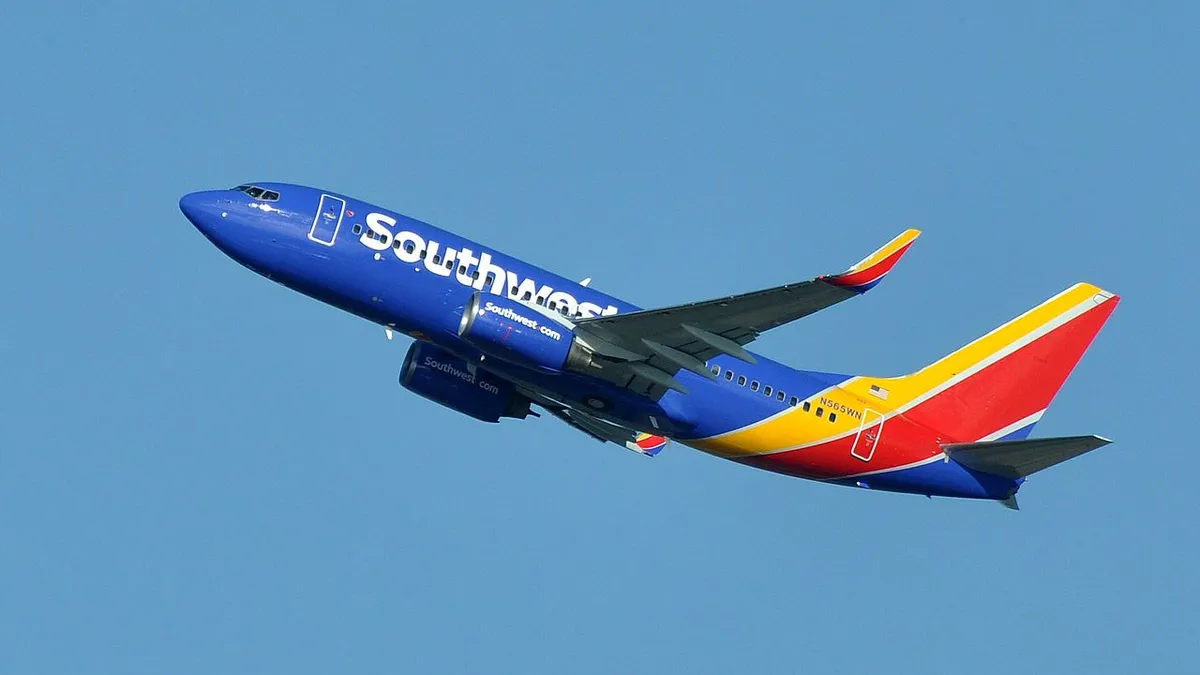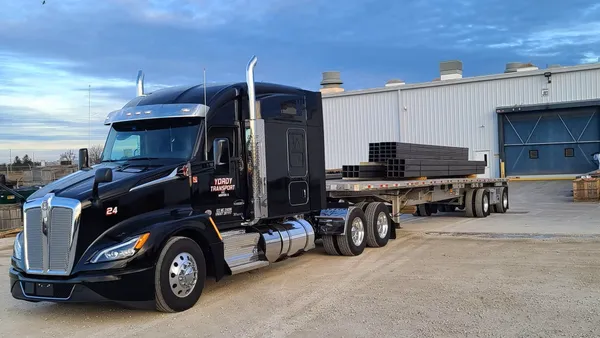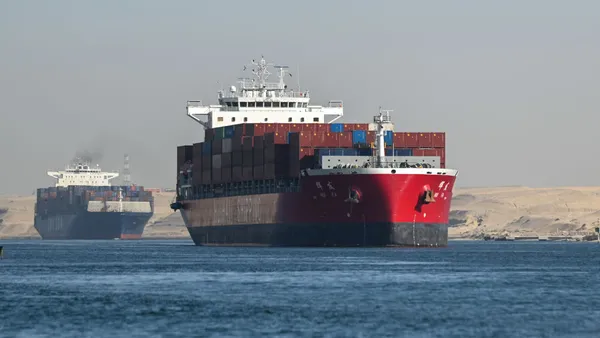Dive Brief:
- Southwest Airlines will expand its cargo operations to international locations beginning this May, according to a company press release.
- The first cargo deliveries will serve several cities in Mexico, including Cancun, Puerto Vallarta and Mexico City. The airline said it has "more international destinations planned for 2018" but did not specify where.
- Southwest will use a new accounting system, known as Southwest Cargo Suite (SCS) to manage its cargo bookings.
Dive Insight:
Southwest's cargo expansion comes as demand for air cargo and cross-border shipments are on the upswing.
The airline's increased capacity will help alleviate some of the pressure on the air cargo industry, although it likely won't be enough to meet skyrocketing demand for air freight.
The cargo expansion will be particularly attractive to shippers looking to transport temperature-sensitive goods over long distances. Air travel is faster than ship or truck, and that reduces time that could result in spoilage.
"We anticipate carrying a wide variety of commodities including perishable commodities, e-commerce commodities, fresh cut flowers and some pharmaceutical commodities," Dan Landson, a spokesperson for Southwest, told Supply Chain Dive.
The expansion could also take some of the burden off of trucking companies faced with long lines as they cross the U.S.-Mexico border. The majority of cross-border trade in North America is done by truck — an industry facing severe capacity shortages and high demand.
Southwest does note in its press release that its expansion is "subject to requisite government approvals." NAFTA negotiations are ongoing, with round seven coming up this weekend.
"We are keeping an eye on the status of NAFTA, but we are not letting that deter us from offering our award-winning cargo services to customers on both sides of the border," Landson said.
But if the result of the negotiations leads to walls (physical or metaphorical) going up along nation's borders, cross-border shipping might become trickier for shippers and carriers.














